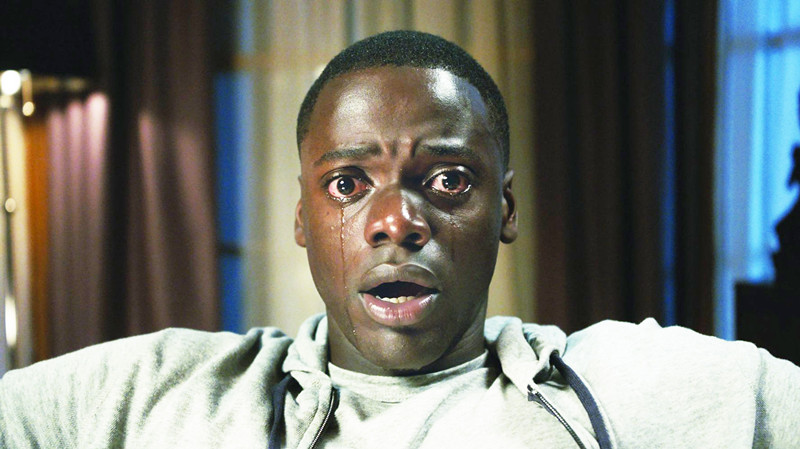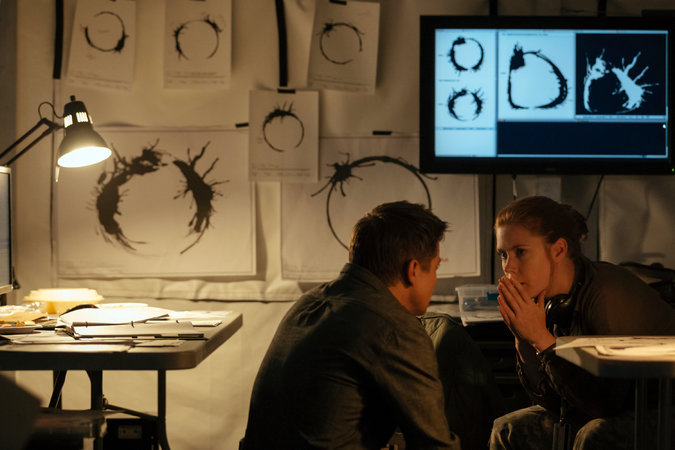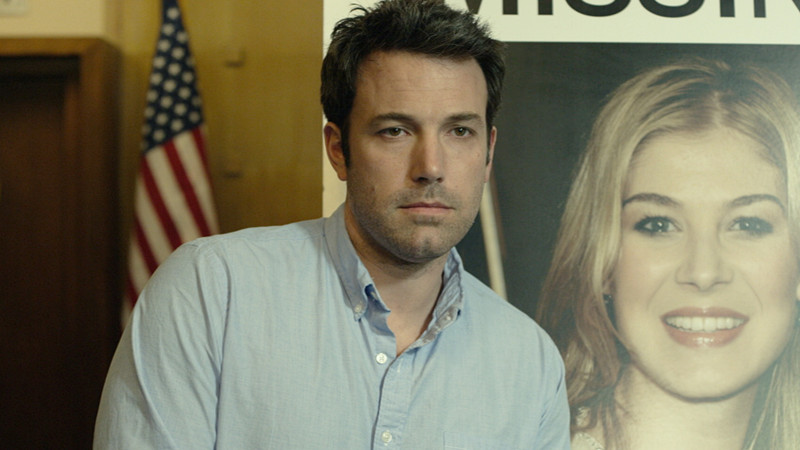
Plot twists. Movies love them. They seem to be the foundation for so many clichéd moments in film. Through stupidly obvious twists or making them so twisty that you get confused, bored and would rather just watch a nice calm Japanese family drama then have a bath.
Some directors seem to think plot twists can act as plot itself and move the story forward just because of its initial impact and this is not the case. Although, some films earn their multiple plot twists and their careful structure, layout and delivery make them all the more satisfying. Despite just explaining everything that’s wrong with them, who doesn’t love a good plot twist? Spoilers alert here of course.
1. Get Out

Comedian turned horror auteur Jordan Peele’s debut feature surprised everyone in 2017 with its brilliantly conceived high concept story. An African American photographer, Chris heads to his girlfriend Rose’s family home to meet her parents for a long weekend. They seem like nice people at first, but little does he know the horrors that he will soon have to face.
The film in itself is a brilliant look on the social injustices of modern America, Peele addresses racism in the most creative of ways whilst also highlighting the shortcomings and selfish behaviour of the upper class. You think Get Out is going to be one thing, then it mutates into something completely different. While it’s not outright terrifying it’s definitely creepy and distinguishes tension in certain scenes with witty humour.
In terms of the twists Get Out earns the right to do the dirty on us not once but twice as we soon discover that something isn’t quite right with Rose’s family and Chris finds himself in grave danger. The penultimate scene where we learn the severity of Chris’ situation, when he tries to make an excuse to leave due to mysterious and strange goings on. The family seem to descend on him in the hallway while Rose looks for the elusive car keys in order for them both to leave. It’s only when Chris loses patience with her that she almost completely stops and lifts the keys from the bag, revealing that she’s been in on the masquerade the whole time.
Once Chris is apprehended by the Mother’s hypnosis technique, he wakes in a strange room facing a TV. This then explains that the family have been luring black people to their home for years in order to put their brain into the captive’s host body due to certain shortcomings that they believe the stolen body will overcome.
It’s two shocking twists that fit beautifully into the visionary horror Peele unleashes before us.
2. Oldboy

The 2004 Grand Prix winner at Cannes and celebrated, legendary South-Korean filmmaker Park Chan-Wook’s second film in his unintended “vengeance trilogy”. Oldboy is an intoxicating, bloody nightmare with a brutalist energy that launches the audience forward into a twisted shocker of an ending.
We begin the film as a drunken man named Dae-Su is arrested and misses his four-year-old daughter’s birthday. He’s subsequently kidnapped after being bailed out by his friend Joo-Hwan and stays imprisoned in a strange room for 10 years where he’s learnt his wife has been murdered and he is the prime suspect. He plans revenge and is released; randomly waking up on a rooftop.
As Dae-Su tries to identify his captor and find his daughter, he meets a woman named Mi-Do and falls in love, becoming intimate with her. We soon learn after a lot of torturing and gory rampages that Woo-Jin, a now very wealthy man Dae-Su went to high school with had imprisoned him. Dae-Su recalls witnessing Woo-Jin performing incest with his sister to which he confided the information with his friend Joo-Hwan. The secret got out causing Woo-Jin’s sister to kill herself and Woo-Jin seeking revenge.
The film sounds complicated enough and you’d forgive Chan-Wook for playing the rest out as one big, bloody battle between Dae-Su and Woo-Jin. But the maverick takes it one step further providing us with a horrifying twist that may be considered worse than death for Dae-Su.
Woo-Jin explains that through hypnosis he led Dae-su to meet Mi-Do and fall in love, then reveals that Mi-Do is in fact his long-lost daughter and he’s been committing incest. Revenge isn’t necessarily sweet as all Woo-Jin wanted was to make Dae-Su experience the embarrassment and ostracization of incest, promptly killing himself in the lift down after he leaves Dae-Su.
It’s a shocking revelation that fits well with the style of Chan-Wooks story. There’s so much violence and a sense of hyper reality that the twist only enhances the shock value and makes for an exhilarating watch.
3. Arrival

One of 2016’s very best films and further establishing French-Canadian director Denis Villeneuve as one of the best filmmakers of his generation Arrival confused and delighted everyone with its whimsical, understated and ethereal tone.
The story follows linguistics professor Louise Banks who’s hired in an attempt to understand why one of twelve alien “heptapods” has landed on earth. As the film begins, we see flashback-like visions of Louise’s daughter dying from an incurable illness, she appears to be grieving and overwhelmed on top of the stressful circumstances she finds herself in.
She works with physicist Ian Donnelly in attempting to understand the strange circular, smoky symbolic language the aliens use to communicate. There’s a sense of unease about the whole ordeal amongst their colleagues and Louise continues to have flashbacks about her daughter in between sessions with the aliens.
The aliens send a message of “Offer Weapon” which China see as “Use weapon” causing mass panic. Louise sees the weapon in question as a tool that the aliens want to give them.
Louise gradually becomes more comfortable and is able to understand more of the language. Throughout the film we are guessing why the aliens are on earth and the answer subverts many well-trodden tropes in science fiction.
She goes alone into the pod and is told that the alien language is the weapon. Those who master it are able to see into the past and future. The “flashbacks” she is having are actually in the future and have not happened yet. Despite this after Donnelly confesses his love for her, she still knows she will have a child with him, despite knowing the fate.
You’d be hard pushed to find anyone that would guess arrival’s penultimate twist and not be affected by its genuine emotional impact. The twist allows the audience to ponder the meaning of life, if we knew about the bad parts would we change the way we live? Thus, risking losing subsequent good times or setting off a chain of bad times. It’s a brilliantly clever film that largely subverts expectations.
4. Memento

A completely original, mind melter, Memento provided master director Christopher Nolan with his breakthrough film. Adapted from a short story written by his brother Jonathan, Memento is unlike anything you’ve seen before completely shattering the chronological structure most movies possess. The film is weaved together so twistedly that the timeline is often unidentifiable forcing the audience to piece together scenes like a jigsaw puzzle.
Memento follows a man with anterograde amnesia, Leonard Shelby, he has no ability to store recent memories. This is due to an attack from two men, Leonard tells us he killed the attacker that raped and murdered his wife but the other escaped. The police rule it was an attack by one person, but Leonard is convinced that there was someone else who got away. He attempts to remember who the attacker is and recalls the name is in the region of “John G”. He also has a messy system of notes, polaroid photographs and tattoos all with clues pointing to John G’s identity.
Throughout, Leonard completes tasks with his so-called friend Teddy whom he can’t remember and eventually finds a photograph leading him to believe that Teddy can’t be trusted. He later gains access to Teddy’s drivers’ licence which shows his full name as John Edward Gamall. Leonard then drives Teddy to an abandoned building and shoots him.
However, this isn’t as simple an ending as you’d think as a whole other sequence begins after he kills “John G”. The timeline is switched again, and Leonard meets Teddy who has found John G, a man called Jimmy, Leonard kills Jimmy and takes a polaroid of the body. Teddy tells Leonard that he hunted down and killed the attacker years ago and he’s just been using him the entire time. Since the name John G is so common, he will forget and begin the cycle again, helping Teddy.
After this Leonard burns the photograph of jimmy’s body and subsequently writes that Teddy isn’t to be trusted on his photo, this will ultimately lead to teddy’s death which was seen in the previous act.
It’s an audacious balancing act that Nolan pulls of exceptionally, the sheer talent in being able to muddle up the narrative so coherently is astonishing. Even having the penultimate “ending scene” if you will of Teddy’s death at the hands of Leonard before the end of the film is quality, making the resulting reasoning for the murder all the more satisfying. Not a particularly relaxing watch, but one of the smartest films ever made.
5. Gone Girl

Adapted from Gillian Flynn’s best seller of the same name and directed by David Fincher, Gone Girl is a stylish, messed up thriller about a marriage falling apart and the destructive lust for revenge.
It begins with Nick coming home on him and his wife Amy’s fifth wedding anniversary only to find that she’s missing. There’s blood in the house and signs of a struggle, Nick becomes a suspect in the murder despite forcefully claiming his innocence. The police also find a diary Amy has kept detailing domestic abuse Nick has supposedly inflicted on her.
Not even halfway through the film a massive twist is revealed; Amy is in fact alive and well and has set up the entire murder scene in order to frame Nick with the motive being money. She has discovered that he has been having an affair with one of his students and she wants him to pay for his betrayal. This instantly changes the mood and catches the audience off guard. Giving us such a huge revelation so early on is a massive adrenaline rush.
However, in another turn of events Nick deduces Amy’s plan and hires a flashy lawyer to prove his innocence. He also finds out from ex boyfriends of Amy’s that she’s set them up to look like sex offenders and tries to get help from Desi, whom Amy has a restraining order against, but he won’t reveal why.
Amy then tries to seek refuge with Desi convincing him she ran away from Nick’s abuse. She then sees Nick appear on a talk show pleading for her to return, he’s later arrested for the murder. That very well could be that for a simpler, less imaginative film and narrative, but Gone Girl throws us another curveball as Amy realises the man pleading on the television is the man she fell in love with, killing Desi and returning home absolving Nick of the murder.
Nick intends to leave Amy having worked her out, but she reveals she’s pregnant after inseminating herself with Nick’s sperm. Nick becomes completely stuck and is forced to stay with Amy forever.
Like the book the film is slick and unique, it’s so much more than your run of the mill murder mystery thriller. The constant ability to make you believe that the story is going one way then pulling the rug from underneath the audience time and time again make it an exhilarating and surprising watch.